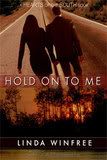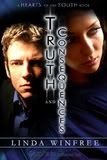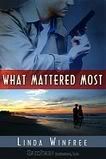Edits & Emotion
One thing before I get started...The Art of Danger won the poll...so that's going to be the name of my most recently polished ms. One that should be headed for my agent by the end of the week.
Okay, so on this little get-a-way I did a lot of editing. One of my rough spots as a writer is being longwinded in the area of description...especially when it comes to emotion. I've got to describe the way someone feels in eight different ways to make sure my message came across, to feel like the reader can really tap into the emotions, conflicts and plights of my character.
The "experts" tell us that readers read for emotion, that they want to experience the rough ride from a safe distance. We've had "character driven books sell" hammered into our brain, and a well developed character means they feel the full range of emotions. In a well-written book, the reader lives through that character.
That's why I tend to go overboard on describing emotion.
My favorite avenue to do that: the body. Someday, when I'm feeling really snarky, I'm going to take one of my rough-draft mss and do a word find to see how many times I use the words (or forms of the words): clench, breath, tight, chest, throat, heart, nerves, smile, frown, pursed, narrowed, jittery, shimmer, tingle...yeah, you get the picture.
So, during the series of revisions my mss usually go through, these are high on my list for extraction. And without them my work reads tighter, faster and even stronger emotionally. Because, as with most things in life, I believe quality wins over quantity.
And because I'm not the best teacher, and I often learn better by example myself, I'll going to share a few examples from The Art of Danger.
Example:
"Let's do this fast." They traded envelopes in a smooth switch, and Saveli pinned the guy with his hardest look. "If it's not all here, I'll find you."
"Same here." The tattooed skinhead sidestepped Saveli, making to bolt. "Fuck." The curse came in a raspy hiss. "Cops."
A shock of fear heated Saveli's chest.
"Savi, cops." Fear vibrated in his brother's voice.
Saveli looked over his shoulder. A few blocks away a sheriff's cruiser slowly patrolled the street. The cop would spot this guy in a second.
Changed to:
"Let's do this fast." They traded envelopes in a smooth switch, and Saveli pinned the guy with his hardest look. "If it's not all here, I'll find you."
"Same here." The tattooed skinhead sidestepped Saveli, making to bolt. "Fuck." The curse came in a raspy hiss. "Cops."
"Savi, cops," Andrei called to him from the truck.
Saveli looked over his shoulder. A few blocks away a sheriff's cruiser slowly patrolled the street. The cop would spot this guy in a second.
Through situational description and Saveli's internals I think the urgency of the situation comes across just as well, maybe even better, because this is an action scene where you want it to move fast, and I've deleted emotional description that didn't add anything to the scene, only slowed it down. Here, pace serves as its own source of emotion.
*********
Example:
"No." Her lower lip quivered and her eyes took on a sheen. "Dad grounded me. I mean, us."
Changed to:
"No." Her lower lip quivered. "Dad grounded me. I mean, us."
I don't think it loses any meaning, and it's tighter. That's what I go for in my edits.
***********
Example:"Straight As don't make for a well-rounded kid. If you raise the bar too high you're setting them up for failure. Why do they have to be perfect?"
"Perfect?" His brows rose, and a chuckle escaped his chest. He wiped his hands over his face. "I don't give a damn about perfect. But I do expect passing. And not with a D."
Changed to:
"Straight As don't make for a well-rounded kid. If you raise the bar too high you're setting them up for failure. Why do they have to be perfect?"
"Perfect? I don't give a damn about perfect. But I do expect passing. And not with a D."
We don't need to see his gesture or facial expression to know he's frustrated.
**********
Example:
Tre groaned and rubbed his face. He felt hopeless, like he was swimming in a bog he couldn't break free of. He tosed his hands in the air. "I don't know what to do."
Changed to:
Tre groaned and rubbed his face, feeling hopeless. "I don't know what to do."
This is a great example of where I think telling works over showing--"feeling hopeless" combined with the gesture of rubbing his face while he's groaning tells it all. Plus I get rid of that cliched bog reference. :-)
Example:
They knew. Shit. They knew. Now what? How could he explain? Would he go to jail? Oh, God, Mom. She'd be crushed. Tanner would be alone.
Tony's eyes narrowed on him. "We just have a few questions, son."
Extreme panic pumped through him, heating his body and rolling his stomach.
No. No, this couldn't be happening. Tre looked around the locker room. Fixtures seemed to twist and sway. A fresh sweat slicked his forehead. "I...I...I swear it wasn't my idea. I swear."
Changed to:
They knew. Shit. They knew. Now what? How could he explain? Would he go to jail? Oh, God, Mom. She'd be crushed. Tanner would be alone.
Tony's eyes narrowed on him. "We just have a few questions, son."
No. No, this couldn't be happening. Tre looked around the locker room. Fixtures seemed to twist and sway. A fresh sweat slicked his forehead. "I...I...I swear it wasn't my idea. I swear."
We absolutely don't need to be told that extreme panic pumped through him because we already feel it, and the reference is repetitive, slows the pace and underestimates the readers intelligence.
********
Example:
Tony shrugged and pulled the sketches down from the window. "We knew they'd get Price eventually. They either blackmailed him or he's in it for the money."
Carson's shock solidified into a rock and dropped to his gut. He covered his eyes with one hand as the past few weeks with Tre filtered through his mind like snip-its of movie scenes--Tre relieved when he got out of seeing his dad, anxious and pissed when he couldn't, questions of rough sex and affairs, the incident at the firing range.
"Oh, my God." He groaned the words resting his head in his spread fingers.
Changed to:Tony shrugged and pulled the sketches down from the window. "We knew they'd get Price eventually. They either blackmailed him or he's in it for the money."
The past few weeks with Tre filtered through his mind like snip-its of a movie--Tre relieved when he got out of seeing his dad, anxious and pissed when he couldn't, questions of rough sex and affairs, the incident at the firing range.
"Oh, my God." He groaned the words resting his head in his spread fingers.
We see Carson's distress in his thoughts and his reaction, we don't need to be told how he's feeling.************
Well, I'm not sure how coherent this all was, but I hope you can see how emotion can be shown in a variety of ways: dialogue, gesture, facial expression, internals, telling, showing. The key is (IMVHO) to use the one that will give you the most punch in minimal space, don't repeat yourself and trust your reader's ability to connect the dots.







7Comments:
Okay, I am guilty of this. But - I also have a problem with having enough words! If I take out 1/2 the emotion words I lose a lot of words! Any suggestions.
I'd have to know what you write and how many words you want to add.
I typically have a problem with too many. I have yet to not have enough. But my work has quite a few subplots, several forms of internal and external conflicts that fill up the word count.
Tell me more about something you're trying to add words to.
I am currently polishing a historical paranormal. The word count is around 83,000, but I need closer to 95 - 100. I have added a couple subplots and just recieved more information on the lay of the land so I can incorporate more description. This is an emotionally driven story with the exteral conflict as well. The chief's daughter who loves the mountain of her people has fallen in love with the spirit of the mountain, but must follow her gift to her people and marry a warrior from another tribe to bring peace to her people. Anyway I have a villianous spirit, and several bad warriors. I think the only way I can add length is to add more descriptions of the area. That is my goal at the moment - after I get through the editing/ polishing.
Excellent post, Joan. This is exactly what I've been trying to say with dialogue. Good dialogue doesn't need the tags or the body language. If its done right, you can figure out emotions and who's saying what just by the words they choose.
Having said all that. I'm guilty of overwriting emotion. I'm going to take your advice and apply it to my current revisions.
I call those "doubles" - double thoughts, double actions. I look for those too in final revisions.
Great examples, J! (And yes, much tighter!)
Patty,
I don't know your story, so I'm just going off the top of my head here, but since you have a chief and tribe and mountain people and a spirit, you might want to layer in something having to do with rituals or other tribal customs--some type of either internal or external conflict that weaves in with either your main plot or adds "body" to one of your subplots. Of course in doing that you'll deepen your characterization as well.
Also, in one of the mss I'm revising now, I thought it was too flat, it needed "something". When I suggested to my agent that I thought I needed another subplot, she said "no, you've already got a lot going on here. just deepen the plots you've already got." Which for me meant beefing up my conflict and deepening my characterization.
Anyway, something to think about. Sounds intriguing!
I'm very guilty of conveing emotion through physical reaction but i also write a lot in first person.
Post a Comment
<< Home